7 Proven Non-Clogging Fountain Pen Inks (Avoid These)
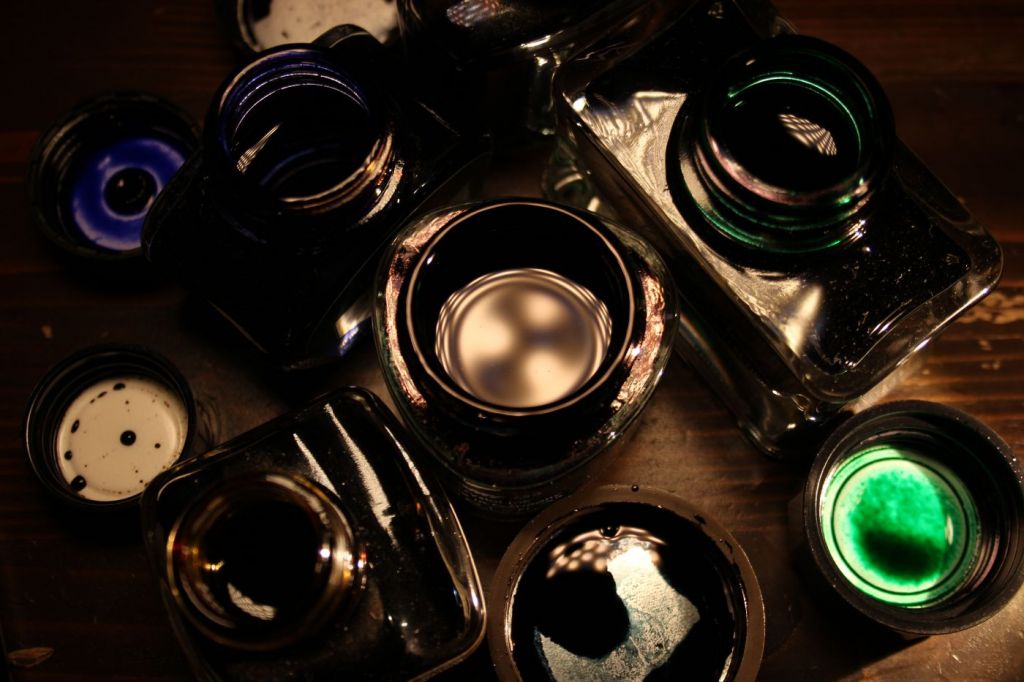
Fountain pen inks that clog your feed or dry out quickly require high maintenance, which could leave you frustrated with your pens and abandoning them completely. Luckily, there are plenty of free-flowing inks that require little to no maintenance.
Fountain pen inks that don't clog the feed or dry out:
- Pelikan 4001
- Herbin 'La Perle des Encres'
- Diamine (avoid Pumpkin)
- Pilot Iroshizoku
- Pelikan Edelstein
- Lamy Crystal
- Noodler's Eel and Polar inks
There are also a couple of inks that tend to dry out your feed very quickly, and are honestly a bit of a pain to maintain. I'll list those at the end of the article, so you know which inks to avoid if low-maintenance is your goal.
Non-Clogging Fountain Pen Inks
Below, I'll discuss the properties of seven ink series that have never clogged my pen, which may help you to pick easy-to-maintain inks for your fountain pen, and reduce how often you need to flush your pens. I'll also mention my favorite of each series.
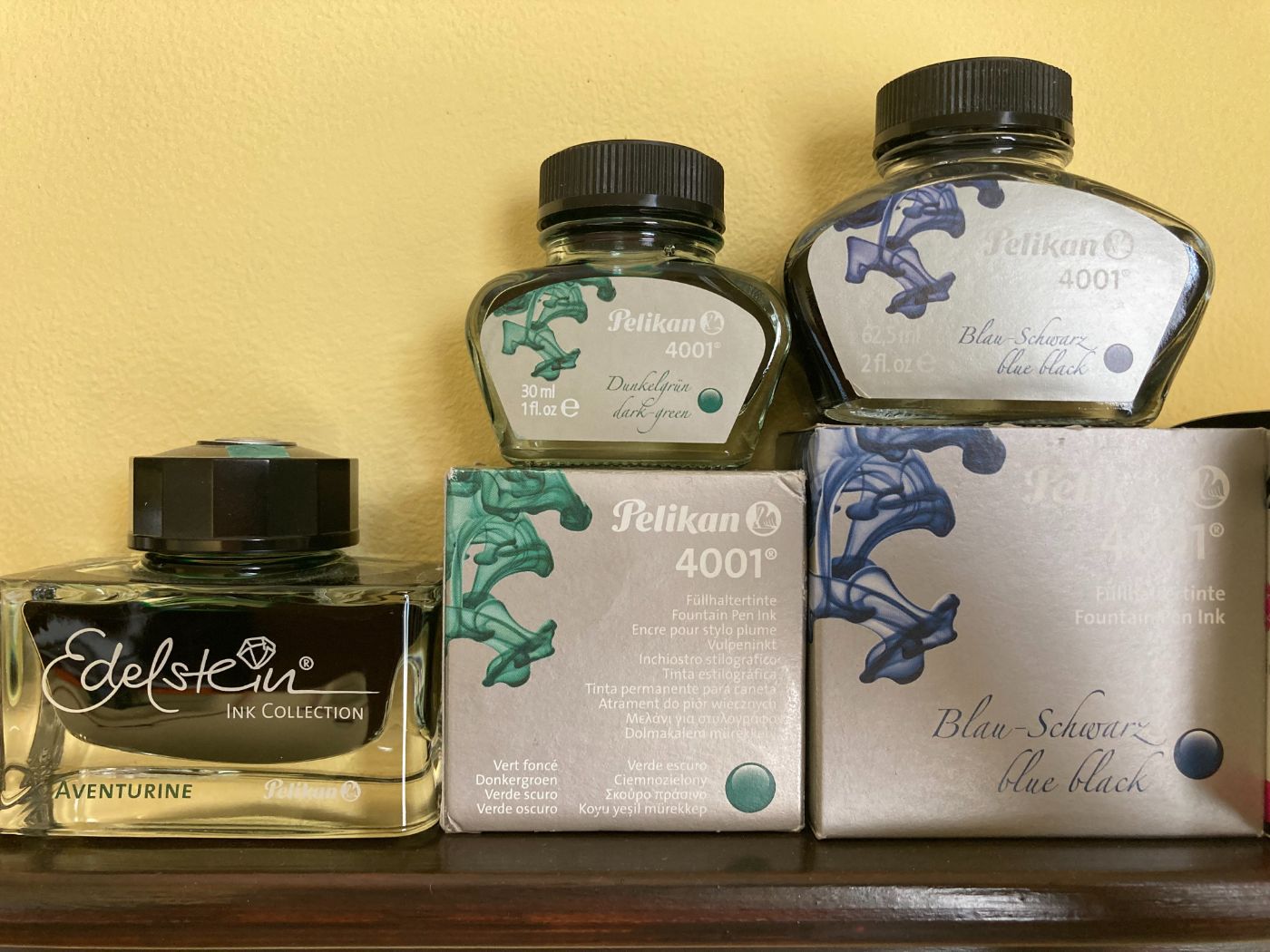
Pelikan 4001
Pelikan 4001 has been the long-standing standard for easy-to-maintain and well-behaved fountain pen inks. Their inks are pretty thin, and I've had no difficulty with it in any pen, even a 1950's Pelikan 140 which I leave inked up for weeks without use. A pretty thin and wet ink, with little to no permanence, and not very waterproof.
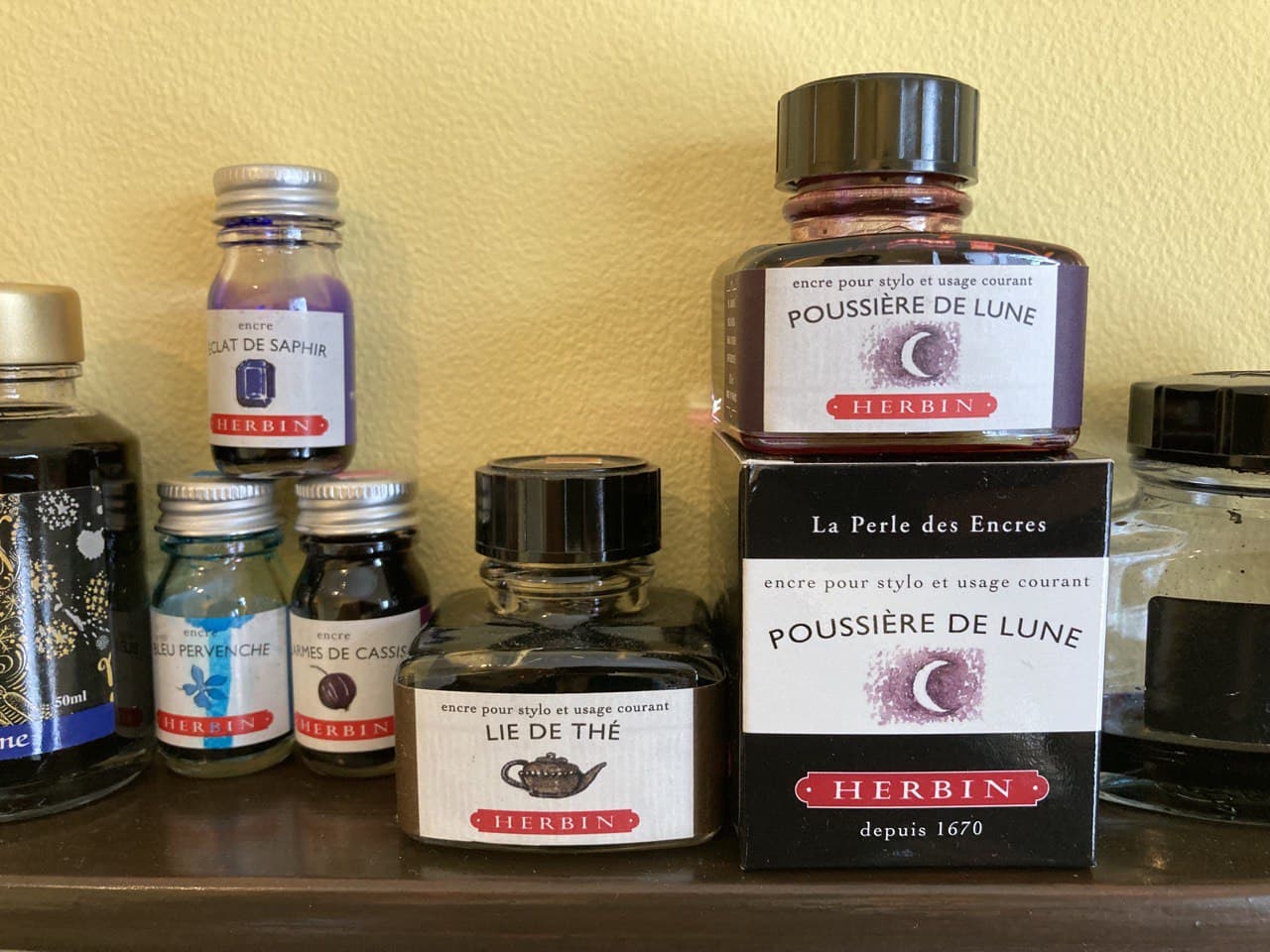
Herbin 'La Perle des Encres'
This entire Herbin series is very easy to clean and doesn't dry out. It's my understanding that these inks are naturally dyed, which helps in some way, although I'm unsure how precisely. What I do know is that these inks never caused me any trouble. They don't dry out in the pen, and they are free-flowing, making them very pleasant to write with.
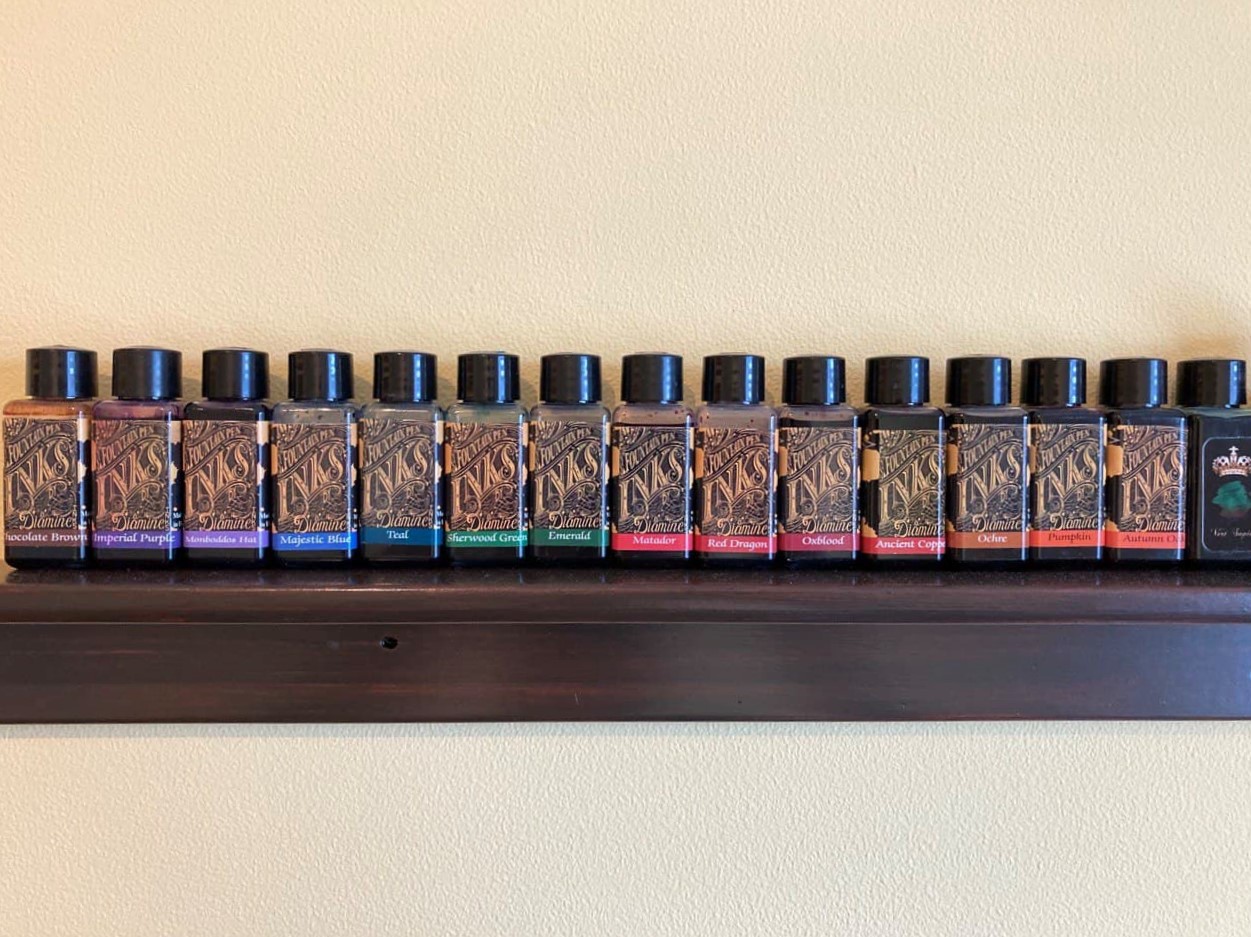
Diamine (avoid Pumpkin)
Diamine has a long-standing reputation for producing vibrant inks that are safe to use in all pens, even vintage pens. In my experience, that is true in nearly all cases. Their inks are wet but saturated and don't dry up in the pen. All but one, that is. The infamous 'Pumpkin', which may lead to frustration through means of crustation. Although this vibrant orange does require more regular cleaning, it doesn't really cause any trouble, and it's worth the effort in my opinion.
Favorite: Diamine Sherwood Green (check at Amazon)
Pilot Iroshizoku
The Pilot Iroshizoku series consists of pretty thin inks that still look great. They flow well and are easy to maintain. However, they are more acidic which may result in other maintenance issues along the line.
Favorite: Iroshizoku Kon-Peki (check at Amazon)
Pelikan Edelstein
Pelikan's Edelstein series is also a very thin, yet vibrant ink series that are easily cleaned and also shade really well. Dry times are pretty short, which also results in more feathering. Overall, I find these very pleasant inks that haven't clogged my pens at all.
Favorite: Edelstein Aventurine (check at Amazon)
Lamy Crystal
Lamy's T53 series (or 'Crystal Inks') are the odd one out on this list, since these are shimmer inks. They contain some amount of glitter and are a bit thicker, which in theory would clog up your feed more easily. However, my experience is that these inks flow really well and won't clog your pens. The writing experience tells me the inks are somewhat lubricated, which could explain why I haven't had any flow issues. If you're looking for low-maintenance shimmer ink, I suggest you try out one of Lamy's Crystal line.
Favorite: Lamy T53 Rhodonite (check at Amazon)
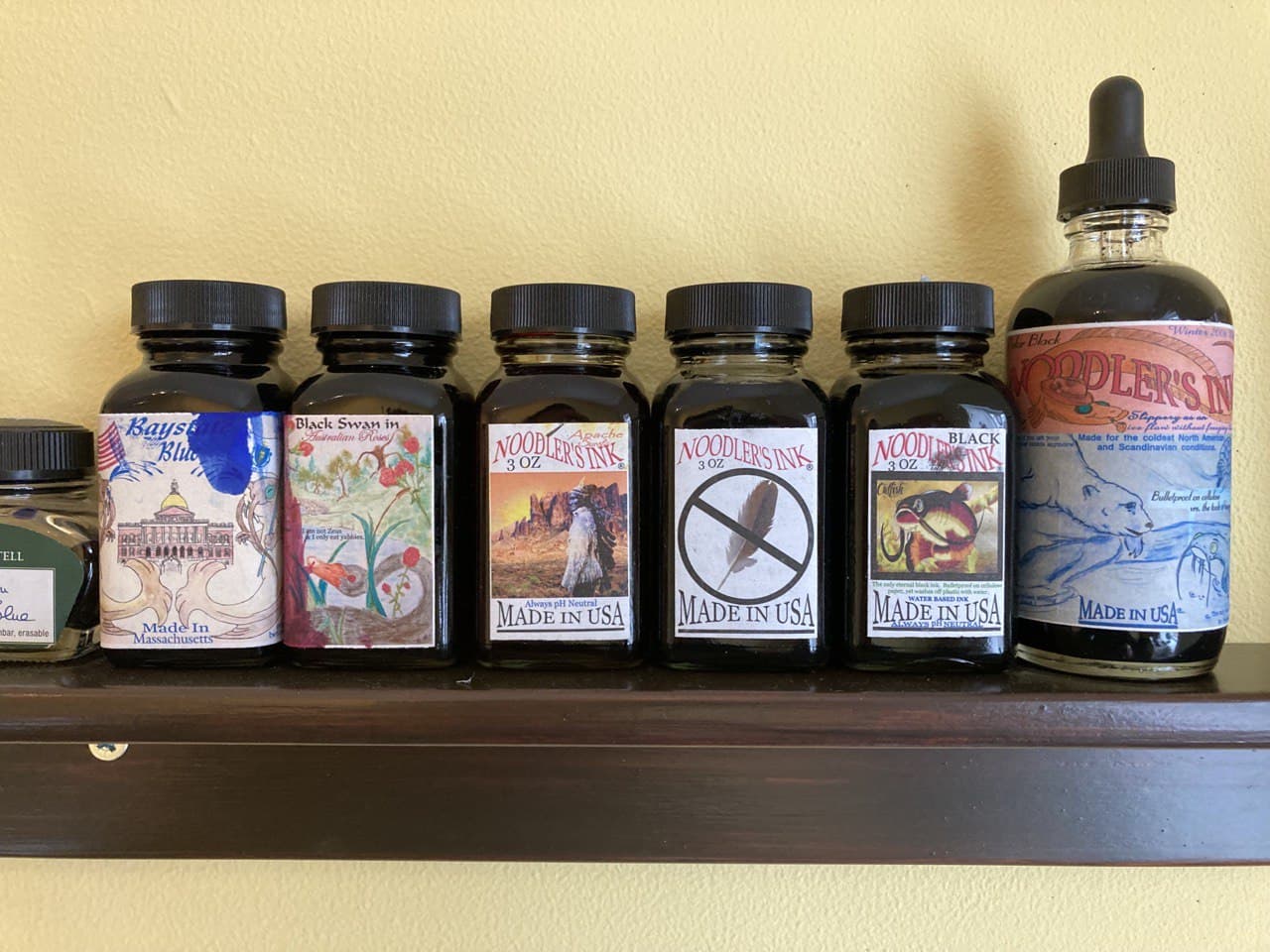
Noodler's Eel and Polar inks
Permanent inks may cause trouble because of their typically high pigment volume. However, Noodler's consistently strikes the right balance between permanence, saturation, and wetness. I find their lubricated inks especially pleasant. Any Noodler's ink with Eel or Polar in the name will be lubricated. While originally meant for use in piston fillers, I think the lubrication improves ink flow in any pen, making it very enjoyable to write with. Dry times will be somewhat higher though.
Favorite: Noodler's Polar Black (check at Amazon)
How to Recognize Non-Clogging Inks
If you want to play it safe, there are some principles you could adhere to. For example, permanent inks will often be pretty heavily pigmented, which increases the change of clogging. However, this is a general rule of thumb, and there are plenty of permanent inks that I've never had any trouble with, like many Noodler's inks.
Another important note is that acidic inks will tend to evaporate more quickly, which may result in quicker clogging. On the other hand, I've found that inks that are as acidic as lemon will not dry out, regardless of how long I leave the pen unattended. These inks do not contain a lot of pigment, like Pelikan 4001, so I think it will be the combination of a low pH (acidic) and high pigment that causes trouble. Similarly, I've hadn't had any trouble with Noodler's Polar Black or X-Feather, which are heavily pigmented, but are pH neutral, so that would confirm my suspicion.
I've written a detailed report on the pH value of dozens of inks, which you can check out here.
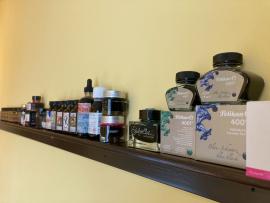
Fountain Pen Ink pH test: Acidity of 36 inks
Rules of thumb for reducing clogging
- Avoid heavily pigmented or shimmer inks
- Avoid permanent and waterproof inks
- Avoid acidic inks that contain a lot of pigment
- Use inks that are lubricated or thinner
Ways to recognize non-clogging fountain pen ink
Swirl an ink sample in a glass and see how quickly the ink runs of the walls of the glass. The thinner and less viscose the ink is, the less prone to clogging it will be. After that, throw out the ink sample and check the bottom of the glass for residue. How much pigment is still in the glass? Easy inks will not leave any residue at all.
Another great way is to simply put it in your pen, and see what happens. I've had multiple inks surprise me that way. Or you could read on to learn more about the safest fountain pen inks to pick an ink that's not just low-maintenance but also won't corrode your pen over time.
Inks That Clog Easily
To end off, I'd like to use the space below to list inks that clog your pen easily.
Diamine Pumpkin
This ink is infamous for the amount of nib creep and crustation it creates, and it will dry out very quickly in your pen. It is low maintenance though, so it doesn't require a lot of effort to clean, although you will need to clean any pen inked up with Pumpkin pretty regularly (once a week or so).
Parker Quink Black
Contrary to consensus, my experience is that Parker Quink tends to dry out my pens quickly. It could also be the breather hole issue with my Parker IM, which is the pen I mostly used this ink in at the time. If you have a similar experience with this ink, I would be happy to hear about it.
Did you find the answer to your specific question?
👍 14 👎 0
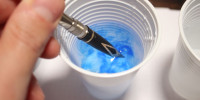
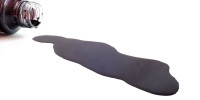
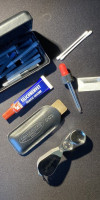
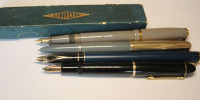
Leave a comment